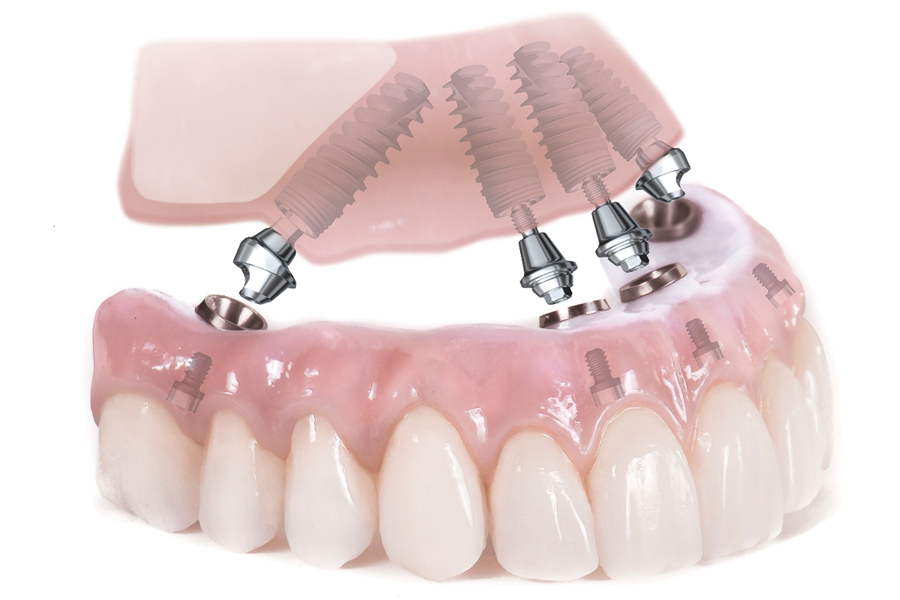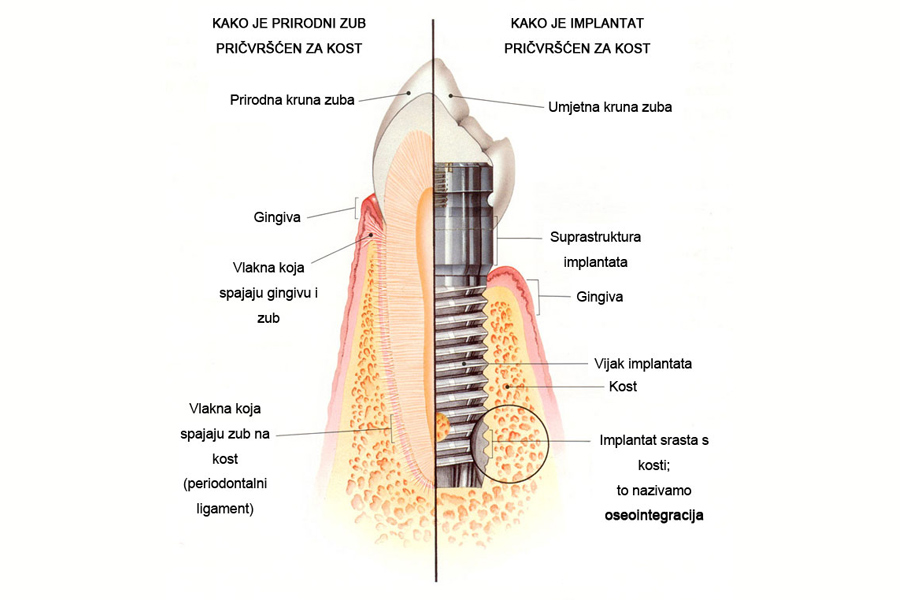Dental Implants For A New Smile
Implant placement is performed under local anesthesia and the procedure is completely painless
Dental Implants For A New Smile
Implant placement is performed under local anesthesia and the procedure is completely painless
All on 4
For completely toothless patients, one solution is ALL-ON-4. By placing four implants in the upper and / or lower jaw, the patient can get a new smile in as little as 24 hours.
Quality Implants
Polyclinic Šlaj-Anić uses the highest quality Nobel Biocare dental implants, which are manufactured with latest technology and are the result of 40 years of tradition.
PAINLESS PLACEMENT
The placement procedure is performed under local anesthesia and is painless. A titanium screw is installed at the selected location and it fuses with the bone in 3-6 months.
Stability & DURABILITY
Dental implants are made of titanium that stimulates cells to form a new bone. This is called osseointegration and ensures the stability and durability of the implant.
Dental implantology is a dental discipline that deals with the installation of implants in the edentulous bone of the upper or lower jaw. Implants are titanium replacements that replace the root of a missing tooth. The lack of just one tooth affects the dysfunction of the entire masticatory system and can also dramatically impair facial aesthetics.
A dental implant solves both problems without the need to file down the surrounding teeth. The implant ensures the most natural transmission of forces and bone loss stops at the site of the missing tooth (which is a normal occurrence after tooth loss). There are a number of techniques that can replace a missing tooth but none is as functional and durable as an implant.
Dental implants are used in case of loss of one or more teeth and in combination with other prosthetic solutions. They are used very successfully in completely edentulous jaws, where they can be bridge supports in patients who would otherwise have to wear mobile dentures.
Dental implants can also serve as anchors for complete dentures, ensuring their stability and enabling the patient a comfortable and safe functionality.
Indications for implants are numerous, but an individual approach to each patient is necessary.
ALL ON 4
One of the solutions for completely toothless patients is the so-called All on 4 approach. The patient, after implantation of only 4 implants in the upper and / or lower jaw, is supplied with a fixed-prosthetic replacement, a 12-member bridge.
The implants are placed at an angle to a specific position, which enables primary stability, so temporary prosthetic work can be performed immediately after the implants are placed. In the period of 3 months, the period necessary to make the final prosthetic work, patients function normally and it is not necessary to wear temporary prostheses that impair the quality of life during osseointegration.
All on 4 procedure can be performed when standard implantation of 6 or 8 implants is not possible without additional surgical procedures (implantation of bone grafts, bone transplantation from other parts of the body) which complicates and prolongs the entire surgical-prosthetic process.
The All on 4 approach involves two phases. The first phase consists of two parts. The first part is surgical placemen of 4 implants in precisely defined positions in the jaw. The second part involves dental prosthetics when a temporary acrylic bridge is placed on the newly installed implants.
After three months, the second phase follows, after definitive impression is taken, and a final prosthetic replacement is made. The final resutl is restoration of normal function, feeling, and appearance of natural teeth.
As with any other prosthetic rehabilitation the patient receives detailed instructions on maintaining oral hygiene and should come for regular dental checkups.
All on 4 is a registered trademark of Nobel Biocare.




